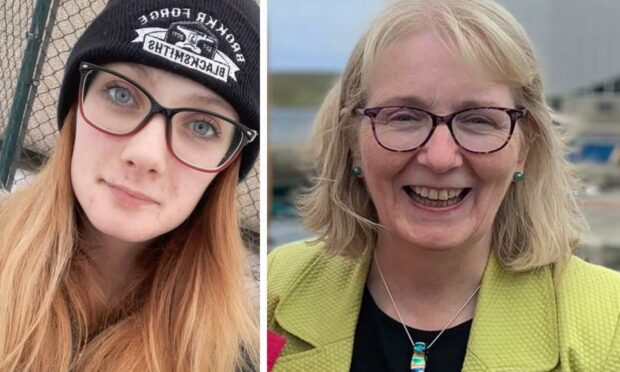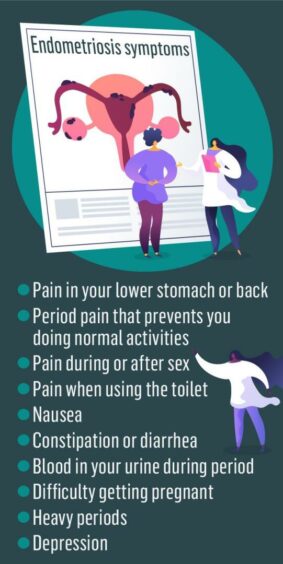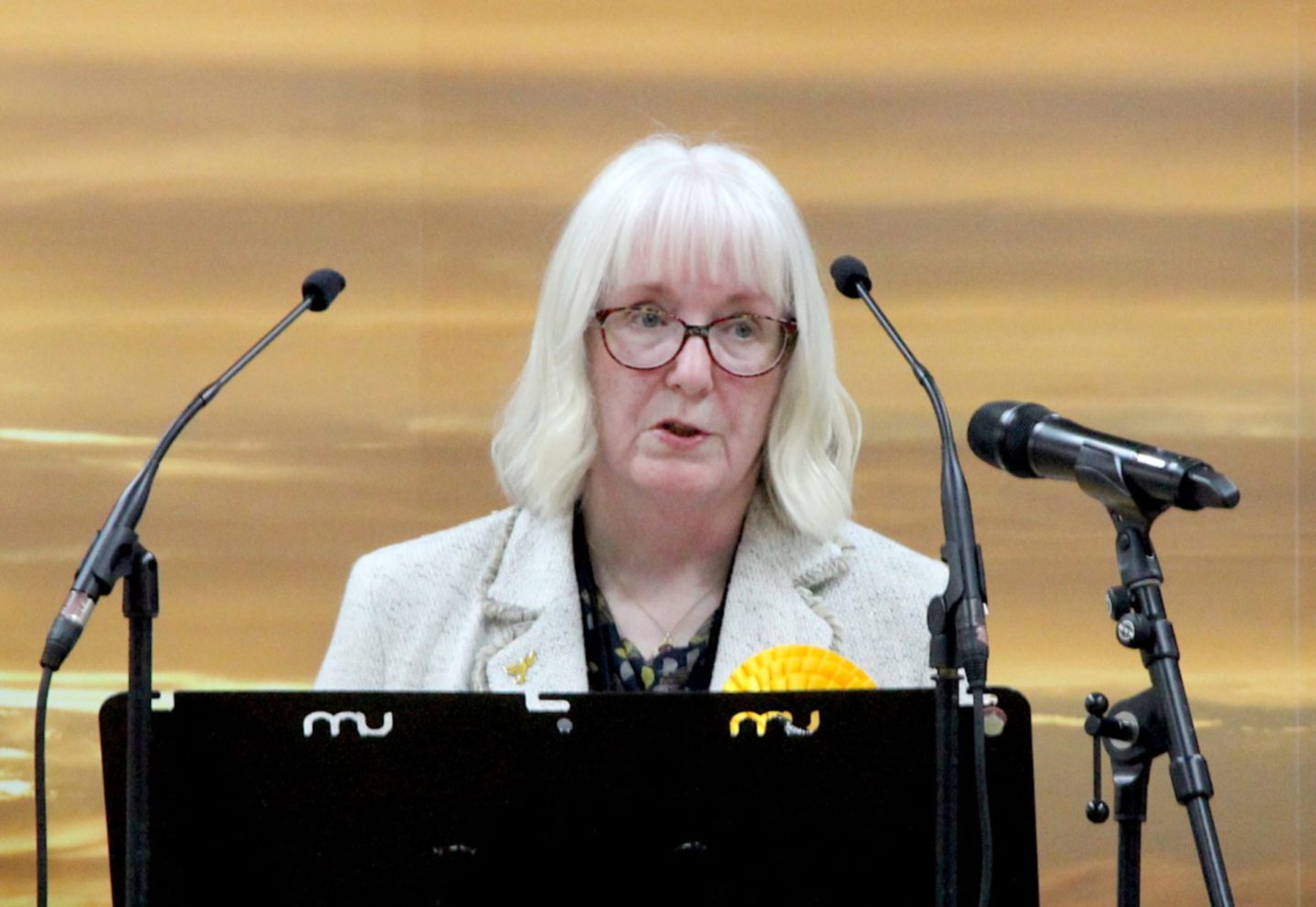Sophie Manson has suffered chronic pain since high school with a condition that can take almost 10 years to diagnose in Scotland.
The 21-year-old from Shetland was recently diagnosed with endometriosis, a painful disorder where tissue grows outside your uterus.
This is the second most common gynaecological condition in the UK, affecting 1.5 million women, a similar figure to that of diabetes.
‘They thought I had appendicitis’
Women of any age can have endometriosis, but it’s believed to be more common for those in their 30s and 40s.
However, Sophie first started experiencing symptoms between the ages of 14 and 15, being hospitalised twice as the pain was mistakenly believed to be appendicitis.
She explained: “It got really bad in high school. I had really bad cramps every month and I was admitted to hospital a couple of times, it was just a nightmare.
“There’s been two times I’ve been rushed to hospital because they thought I had appendicitis, it’s kind of scary knowing the symptoms are similar.”
‘Last couple of years have been agony’
The condition has become more painful over the past few years.
“When I hit maybe around 17 or 18 I took a bad turn for a few years, it did ease off a bit again, but then the last couple of years have been absolute agony at times.
“I’ve had to take days off school and work because of the pain,” she explained.
Sophie recalls being advised she was suffering from either a urine infection or bad period pains when she first encountered problems.
But after speaking to others about endometriosis, she began to do her own research and she realised she was suffering the same symptoms.
‘Fertility issues are a big thing’
Sophie was diagnosed with endometriosis at the end of last year.
And after suffering another really bad flare up two weeks ago she’s now trying different medication to see if it eases the pain.
Now, she wants to raise awareness of the condition and believes children should be educated about it in schools.
“The main thing for me is definitely to try and raise more awareness of it. It’s an issue that people don’t know enough about.
“I definitely think it should even just be spoken about in school.
“I remember doing a poll on Instagram and it was weird how many people were suffering quite badly with symptoms that relate to it.
“Everyone was quite unaware and actually enlightened by the research I talked about.”
Endometriosis can cause fertility problems. And although the reasons behind this are not fully understood, it’s thought to be because of damage to the fallopian tubes or ovaries.
Sophie is concerned about the condition having an impact on her ability to have children, with an estimated 30-50% of women with endometriosis becoming infertile.
She added: “There’s obviously fertility issues with the condition and for people like me it’s a big thing to have a family.”
‘Important we tackle inequality’
Beatrice Wishart, MSP for Shetland, recently spoke out in parliament on the back of figures showing on average Scottish women wait eight-and-half years for a diagnosis.
“Endometriosis is not a well-known condition and yet it has a significant impact on the lives of women and girls across the country.
“Symptoms can be debilitating, and we need to get away from the myth that it is just painful periods,” she said.
She also stressed the importance of ensuring gender equality, which includes addressing issues relating to women’s health.
“It is really important that we tackle inequality in all its forms and this condition, with its long wait times for diagnosis, highlights one such division.
“Girls curled up in pain missing out on their education, relationships strained, and infertility issues add to the pain of this condition.
“We need more understanding in school settings and the workplace so sufferers can be supported,” she added.
Read more:
Scotland sets out bid to become ‘world leaders’ in women’s health
Endometriosis: ‘Thousands’ could be helped by women’s health plan
Endometriosis inquiry: ‘If this doesn’t make government wake up, I don’t know what will’



